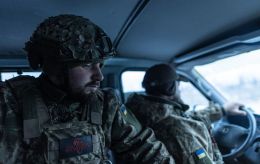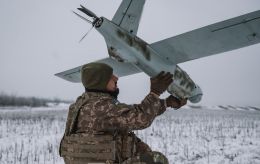Military psychologist Andrii Kozinchuk: We have lots of great specialists, but there is no system
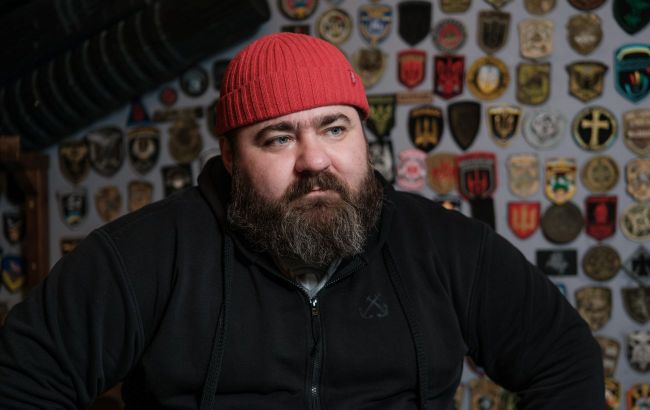 Military psychologist Andrii Kozinchuk (Vitalii Nosach, RBC-Ukraine)
Military psychologist Andrii Kozinchuk (Vitalii Nosach, RBC-Ukraine)
The war has divided Ukrainian society into those who are fighting at the frontlines and those who are in the rear, those who have been forced to leave the country and those who remain under missile attacks in Ukraine, those who are still having fun and those who disapprove of it. But we all live in wartime.
Military psychologist Andrii Kozinchuk explained how Ukrainians find understanding, deal with soldiers, and overcome stress in an interview with RBC-Ukraine.
- What does the work of a military psychologist involve in times of war?
- The work of a military psychologist is divided into three stages: before, during, and after the battle. "Before" is preparation, screening, what the guys do, who they are, where they come from, what their morale is like. We teach them about stress and its consequences, so they don't panic about their reactions. We conduct surveys to understand who we are dealing with, see how they interact and react to each other because they will later have to go through a psychologically traumatic event together.
Psychologists usually don't storm positions. "During," we work with those who have withdrawn - those who are scared, paralyzed, meaning acute reactions or complete absence of reaction. We observe how people react to loss, to injuries.
Then there is "after", also known as recovery, when everything is over and we пщ somewhere else. We conduct a group analysis of actions taken, which can be somewhat emotional sometimes. We ask soldiers what they saw, what they felt, and what they did. This way, the fighter trains his brain to analyze things without emotions.
There is also a need for rest, when you can shower a lot, sleep a lot, but you still carry a weapon, wear uniforms, stand guard, protect. You remain a soldier. Some go on vacation, some return.
Preparation can take from two weeks to two months. There are brigades that do it for up to six months, with the battle lasting from 8 months to a year, and then recovery for about a month. But I know two brigades that were taken out of their locations in the morning and then back in the battle at night because the front "was braken through."
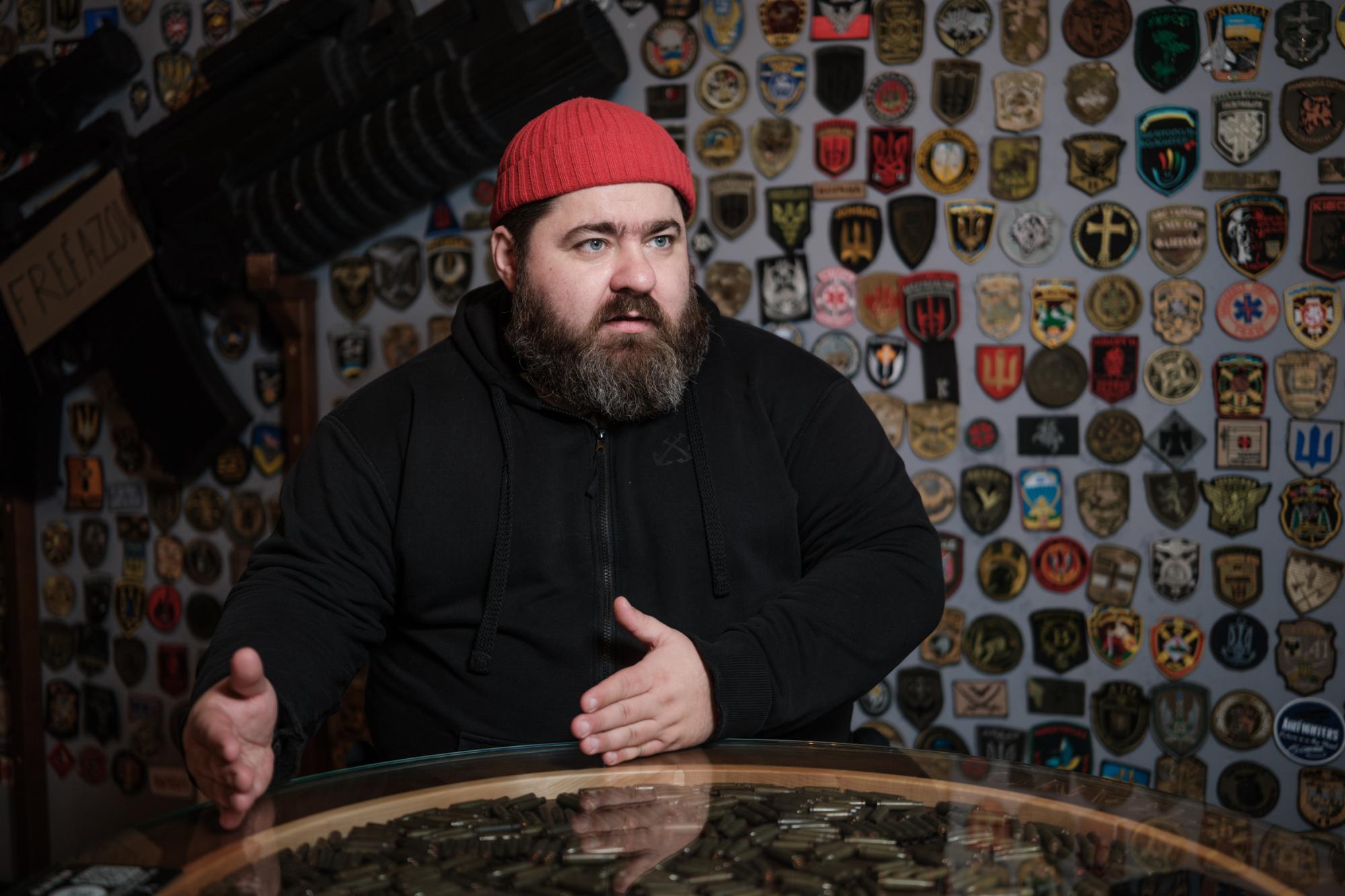
- You were recently discharged from the hospital in Kyiv. How big is the contrast regarding the peaceful city and the areas near the front line? What impresses those who come for treatment or vacation?
- My official status is "medical leave", I was treated for four months. Regarding the contrast, I am not a representative audience because I knew where I was going: I needed guys in white sneakers with beautiful tattoos, women in multicolored tights, very tasty restaurants, and cars that don't drive on rough roads. I missed all this. I was waiting in traffic jams and thought how awesome it was!
It's a bit more difficult for the guys. For example, there was recently a discussion about Hrynkevych and Sonia Moroziuk (a story that went viral about this guy's family being involved in corruption and support of war, buying expensive things, going on trips, etc. - ed.). I asked the guys: "Do you follow?" They said: "Who are they, what is it?" They have the internet, they all watch TikTok, but they were not aware of that scandal. That is, they have a completely different rhetoric.
And there are such expectations that a war hero returns, and here the rear supports the front. This is, by the way, true, but what should it look like? Everyone marching around in uniforms or what? Everyone poor, with torn bags from the store?
We work before leave. I say: "Tell me your expectations." "I'll go and we'll see." I say: "We plan the first day, the second day. We simulate the situation: you come see your relatives, they sit you down at a table and ask you questions: "What went wrong with the counteroffensive?", "Is it true that you earn this much money?", "Why don't you send anything to your mom? I talked to her", "And haven't they chopped off your limb yet, were you injured?", "You seem to have gained weight - it's not that bad there anymore I guess."
And so I ask: "So, what would your response be?" "I'd beat them all up." I say: "Criminal charge, that's it, you're getting a hundred years in prison." "Or you go to a cafe with a beautiful woman and see handsome men in white sneakers with nice tattoos discussing how to really fight, and you're drunk." We try to simulate, and it all comes down to "I'll beat them all up now." That doesn't make you a war hero; you came a hero, but you'll end up in prison. That's why they are less triggered than they should be.
There is this trendy topic - a military lawyer. They understand military law and solve issues of who gets discharged. I saw maybe four fighters who tried to get discharged while they were being treated: to arrange some documents saying that his mother needs care, for example, or because of his health condition.
Although who knows. Maybe, indeed, their health is poor. So we recruited new guys and compared them to the ones from last year. The motivation then was at 85% going to the military enlistment offices voluntarily, they were handed a mobilization order. Now it's at zero, everyone was served a summons. And the health condition in general includes heart problems, vascular issues, back problems. This reflects on the quality of the war. The question is not that we all storm positions like Rambo, even some endurance is required, someone has to be on duty, someone has to crawl under equipment at below zero temperatures.
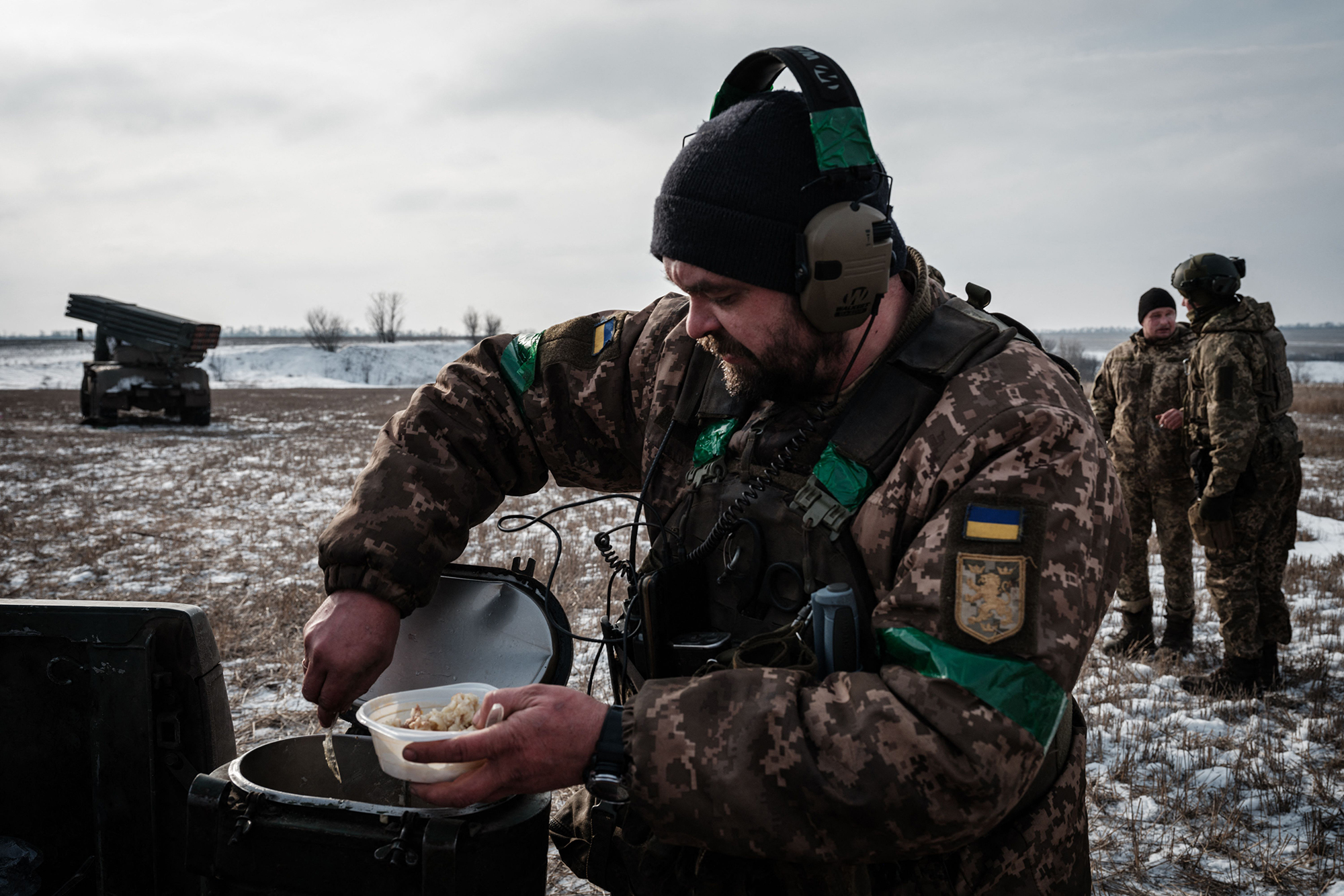
But these attempts to dismiss me have surprised me, because there's no such thing in my unit. I live in a "bubble." I fought in 2014, and since then, I've been around guys like this. I can't say we all walk around in embroidered shirts everywhere and quote Ivan Franko in memory, but there were no questions like "shall we go or not" when it came to full mobilization – they all went. And now we constantly complain: "Oh, I want to transfer to another unit," but nobody complains that they need to give up everything, go to Tenerife, find themselves a mulatto girl, call their wife, and live a beautiful life.
So that's how it is for me. I don't blame them; I feel sad – they don't want to do this for a good life. There are problems, there can be disconnection with the commander, wives, someone who "wasn't born to fight" at all ended up in the war. It's sad.
– Recently, changes to the conscription law were discussed, and some men started to panic. How is this perceived by those who are at war?
– It's not discussed there. They discharged me, and I went on leave to my people – to sit in the smoking room, listen to what people are talking about. They don't care at all. True, some military personnel think that they will recruit half a million people now, strong guys, and they will replace all of us. I say no, they will complement us. There won't be any "demobilization," just rotation. But it takes six months to recruit them. And then another six months to train. Hello, 2025 – we still have to survive somehow. The guys worry more that we've reduced our artillery fire.
The framing of the discussions on military service candidates is not liked: "no weapons," "cannon fodder" brigades, "send without body armor", "send without training." So, we're apparently a "vegetarian" brigade because everything's fine with us, although there are losses too. It's just annoying. Everyone gets angry not at the enemy, but at the recruitment office because they're taking people into the army.
I did a live stream about mobilization, and people commented stuff like "Let the professionals fight," "This is the task of the Armed Forces", and it just killed me. Who makes up the Armed Forces? Were we trained for this our whole lives or what?
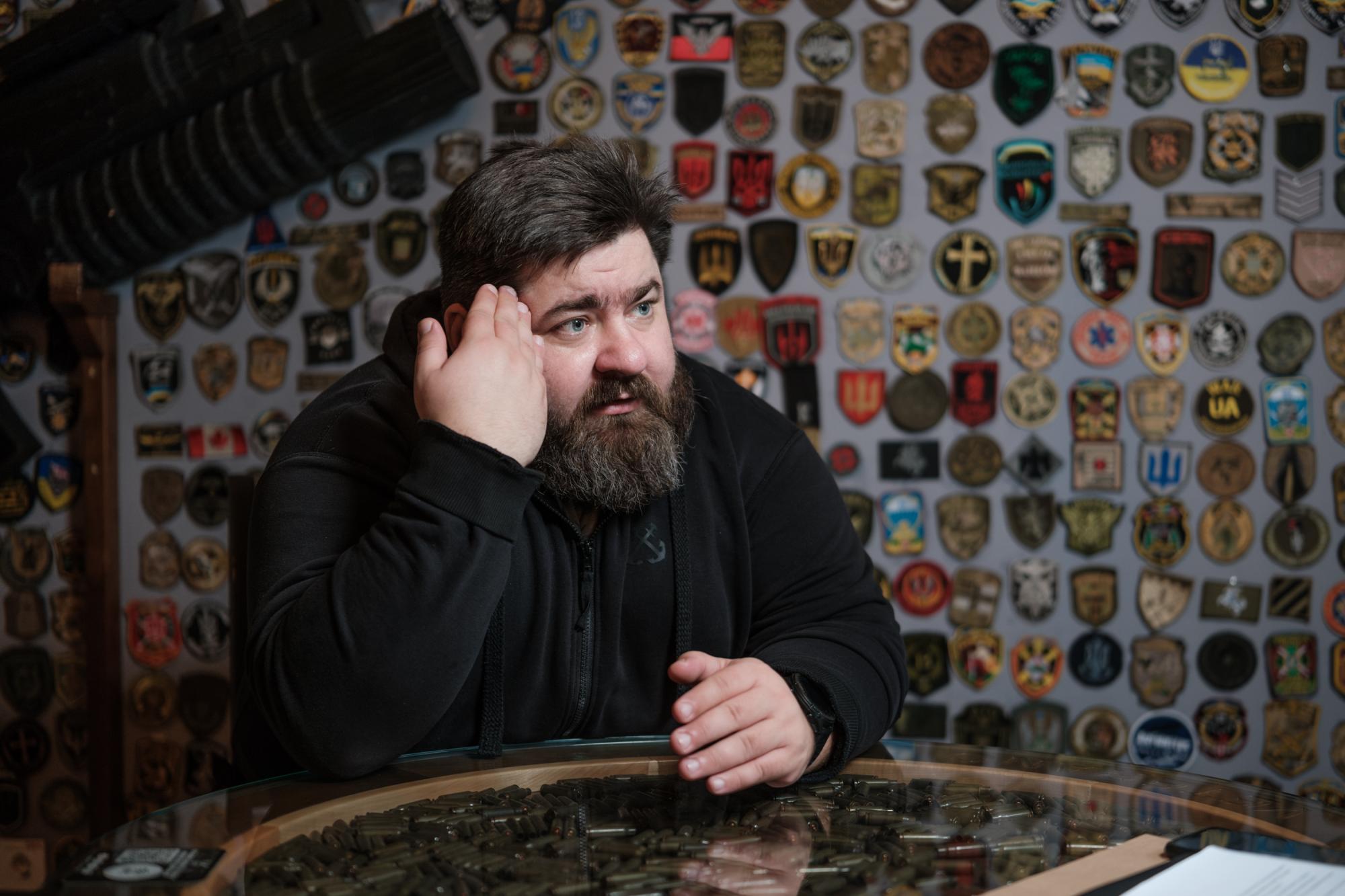
There are a number of questions for the state – you can establish a term of service because some specifics are needed. We also want to know how much longer. Plus, civilians also don't understand what awaits them after conscription. It seems that there's a portal for landing in the military enlistment office: they dress the conscript in "pixel," give him a rifle and three cartridges, and he goes to the Donbas. And what happens next: will I go to the navy, to the air defense, will I fly F-16s because I read on Facebook that they will soon bring them, or will I ride on an Abrams, or will I be in infantry? And it would be nice to explain the selection criteria, who goes where. They don't know this.
– There is growing misunderstanding in society between those who are at war and those who are not. How to overcome this division?
– Firstly, it's normal. When did we have a united society? On February 24, 2022, and for two weeks we held together. During the month of the war, we were very cool, united.
As soon as the Armed Forces localized the enemy in one place, we immediately had a "danger zone" and a "safe zone." Let me explain why: in the danger or survival zone, a person thinks more with the limbic system, they need to survive, and emotionally, instinctively, they do some cool stuff. Here, where the safe zone is, you have to go to work, pay taxes, dress up. A military person doesn't have the "today is Monday, what shall I wear?" situation. He gets out of bed in his sleeping bag, puts on socks, and runs.
These are two different categories by the main brain function. It's neither good nor bad, they're just separate. How to unite them? We need to tell the occupiers: "Let's go to Uzhhorod and back, just don't kill anyone." I don't want that though. Currently, this is an explanation of why it is so. These are two different societies. A person who is constantly in the mud, knowing every second that a mortar could come, cannot live with the same schedule as someone who says, "my flat white is oversalted, and they confused cappuccino with pumpkin spice latte."
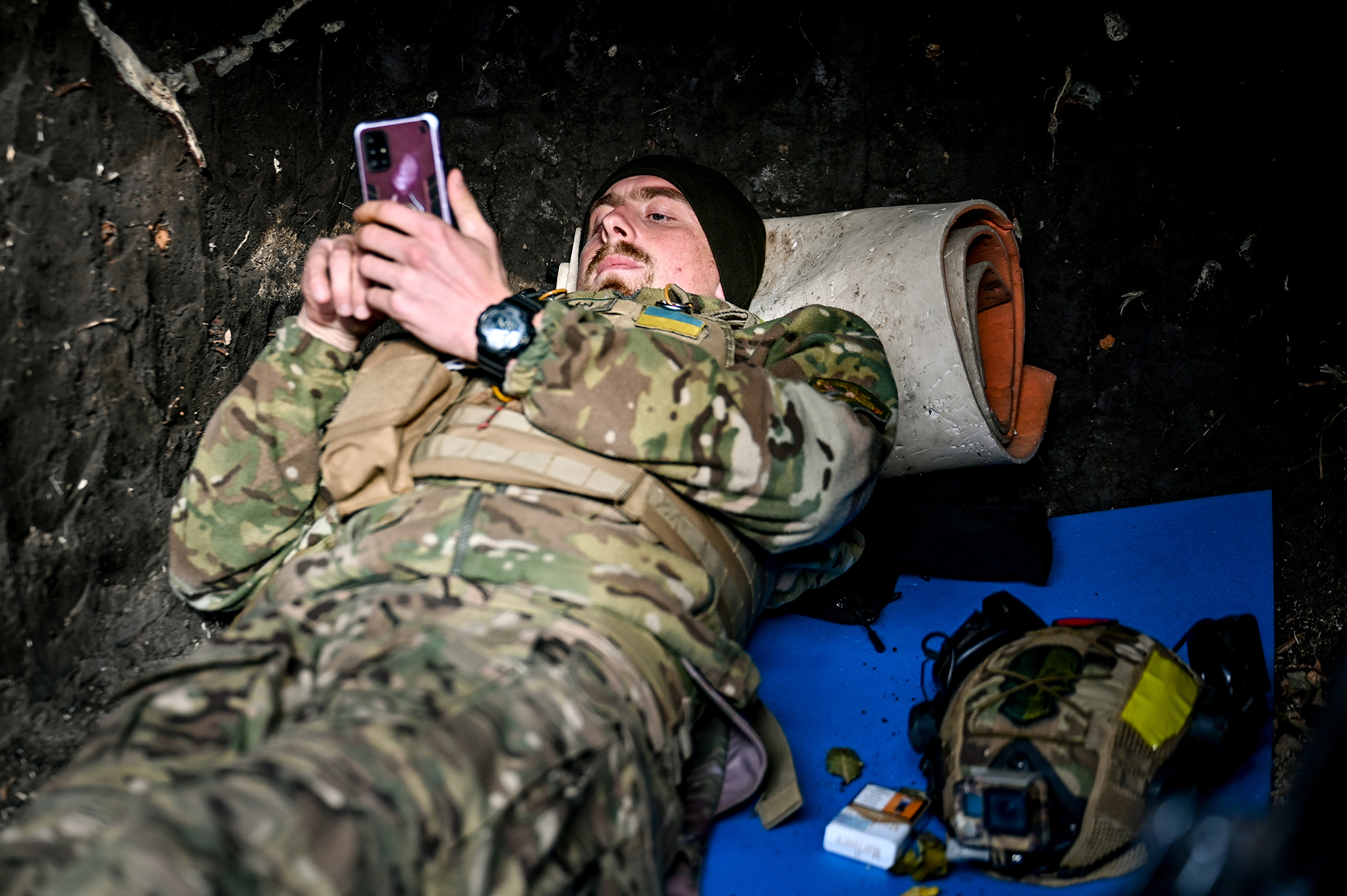
– Are there chances that these two parts of society will find common ground after the war?
– Of course. In all armed conflicts, there's a period after returning from the war: euphoria, disappointment, aggression, depression, acceptance. Nobody stops at euphoria. Maybe someone will stop at disappointment and keep shouting "betrayal," someone at aggression – storming liquor stores. If the goal of the vacation is to restore strength, not to relax, then after the war, you need to integrate into society.
Because there's an idea that society must understand us. No. Here's society, and here are the military – our task is to meet halfway. Shake hands and say we love each other, let's live together. But it's a long process – and there will be different people, a surge in suicides, disappointments, some will turn to faith, others will become atheists, families will fall apart and reunite. I would really like the state to have a policy and a system of what to do next. Because we have a lot of cool specialists – psychologists, psychiatrists, sociologists, priests – but there's no system.
– Should the state create such a system?
– Not necessarily. I like the system in Denmark – there are many who fought in Iraq. When they returned, the state recognized that it couldn't cope. Then civil organizations joined, the state partly finances them, controls them, helps them, promotes them.
Americans have calculated that investments in veterans' mental health pay off almost 10 times. If a veteran has normal mental health, he goes to work. The task of Americans is to make sure he goes to work and spends his earnings. And they said: let's love the veteran, make movies about him.
– Do our military expect some special reaction when they return?
– Yes, and they don't admit it. How to react? Well, you don't. There shouldn't be anything like that. Sometimes a soldier goes not with a backpack but with a little purse. He enters the gas station – and all civilian men disappear because he looks like a military commissar. Some people are afraid; no one admits it, but the military feel it. People after psychologically traumatic events have a very high sensitivity of mirror neurons and feel fear, lies because it's a path to survival. And this is what I would not like to see - us being afraid of or dismissive of our choices, it hurts us a lot.
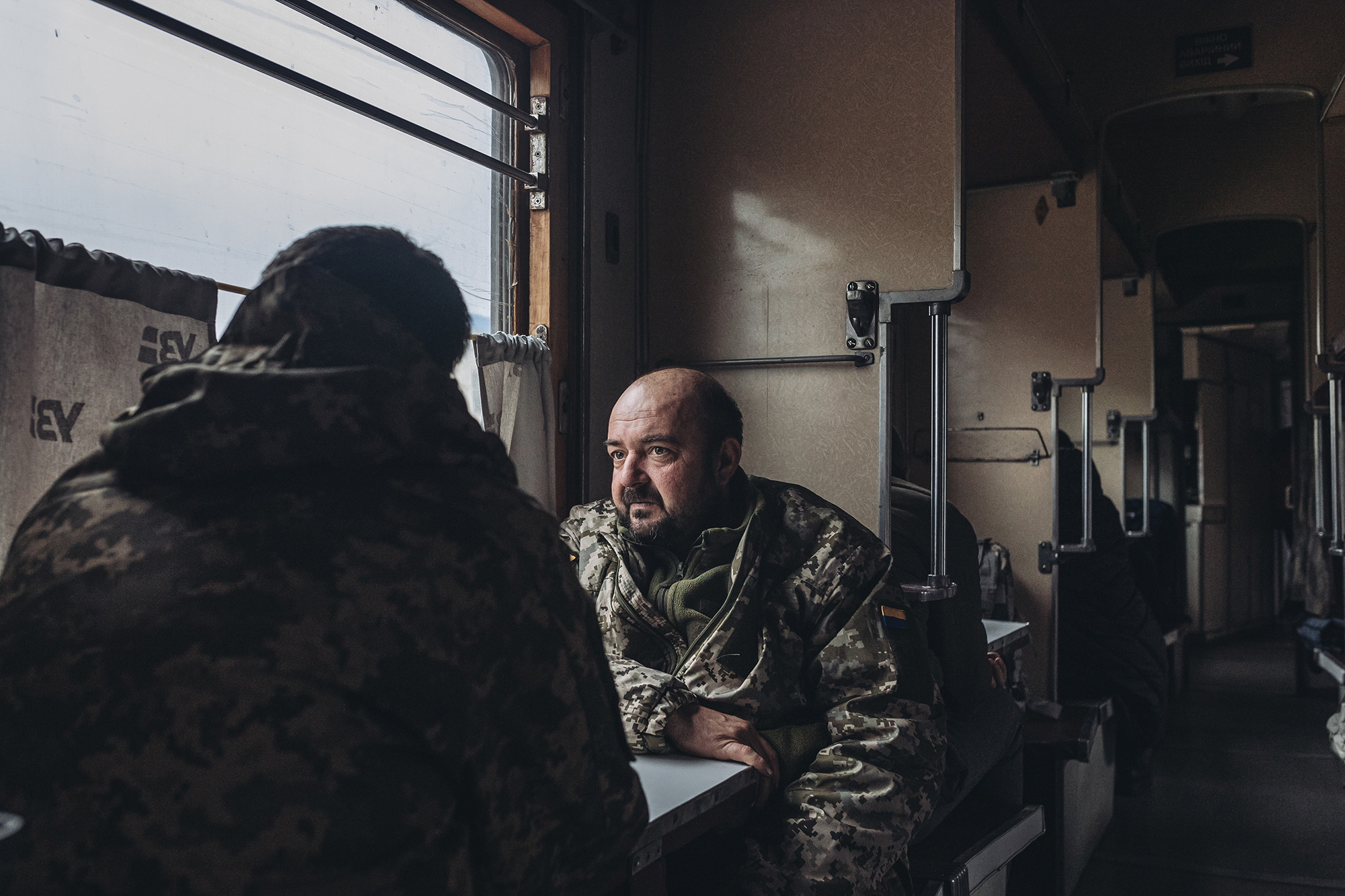
Each had their reasons. Most will say it's about defending the country. But in reality, some were escaping from a woman, someone had trouble with their business, someone wanted to prove something to themselves, someone wanted to make money – because, well, 28,500, imagine that. Where do they pay such money in the village of Verbliany in Lviv region?
It's a tough decision. Someone explained to me once that it's better to drown in the Tisa River than endure humiliation in the Armed Forces. I ask, "Have you been in the Armed Forces?" "No, I heard." I deeply believe that in most cases, people went for themselves, even though they say they went to protect their son, daughter, but fundamentally, it was for themselves.
– Are people afraid when they receive a draft notice? Because no one was prepared for that. Do they provide psychological preparation in training centers?
– No, but let me explain why. Everyone experiences stress because they don't know anything, fear the unknown. And that image in the mind is very scary. The scariest thing for me during the war was the journey to war because nothing was clear. It's cold, hungry, people curse at you, say unpleasant things. It's not fear, it's discomfort.
In the training center, they prepare for war "indirectly" because they "annoy" you so much there, everything is scheduled, drills, running, uniforms worn out, and there's one dream – to sit on a stool. You have to surrender your phones, there's no time to be afraid of being drafted.
An unmotivated soldier comes to us. We have the first conversation, how are things, where are you from. We learn some basic things about him and also his motivation. We ask why he didn't go in 2014 or on February 24th. And we show: this is the shelter, we run here when they shoot, there's the toilet, there's the shower, there's the cook with the kitchen, and this is your commander. And for a week, nobody touches the soldier. He attends some events, maybe watches. In the process, he may "fit in" with some social group or specialty. After a week, we talk again. We don't need him to be a super soldier, we need him to figure out which of his skills will suit us. Because the army is not just about shooting.
– There's an opinion that Ukrainians are historically warriors, so it reveals itself in war.
– Genetic memory is a "memory card" from previous generations. This gene activates when it's needed. A person, entering a state of severe distress, acquiring new skills, finds it within themselves. Right now, in the army, there are intellectuals, intellectuals, the working class, the clergy. This is not everyone's story, but relatively many. As a psychologist, I relate this not historically to the Cossacks, but biologically. According to the genetic code, there's this thing that we're descendants of Cossacks, Varangians. Especially among those who went to war, there are two stages: during the war "I want to go home" and at home "I'd rather be at war already", there's no third.
In war, a person experiences the most intense emotions in the world – not to be confused with the best. Joy, anger, sorrow, disgust – at the highest level. You've never felt yourself as alive as there. And it was unpleasant, but you felt something. Nobody feels life as vividly as someone who feels the breath of "bare bones".
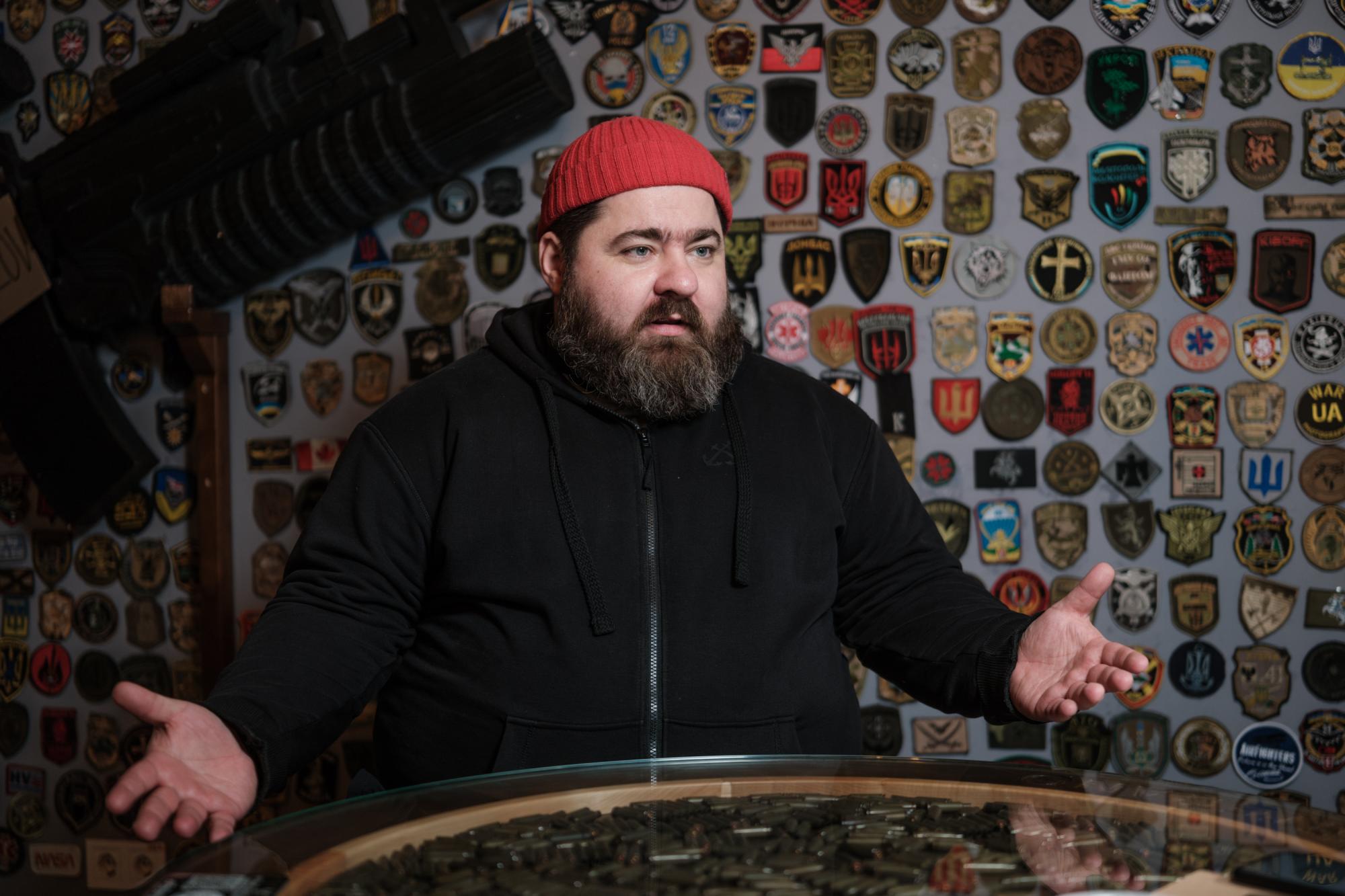
Those who have been through war later apologize to former classmates for not being able to, buy things they couldn't afford, divorce or tell their child they're proud of them, make decisions. It passes. Once you come to safety, adapt, you want to make money again, have an iPhone, understand something, have your own community.
– Many families fall apart because of war. How serious is this problem now? Which marriages are worth saving, and which are not?
– It's not a problem. The problem is when you're in a marriage, but it's toxic, the husband beats, the wife cheats, but you're a family because what will people say – that's a disaster. And what is a good divorce – when a couple splits and both become happy. Relationships are when a partner gives resources and energy. For us, it's important not to preserve the family but to preserve the individuality because we have a lot of domestic violence, stalking (when a husband asks where you are, controls presence).
There's currently a wave of divorces because there was a wave of marriages in the first three months of the war, "I fell in love with him on the front line." You can't form a couple in traumatic events. There's a 94% likelihood it will break up in safety. If a person is in danger and can't escape, they look for someone to unite with. The easiest way to do this is by getting married.
But I've seen a few marriages of volunteers and military personnel that I look at and want to cry with happiness, I just envy them as humans, how well they're doing. It would be cool if a person was capable of love, not just of weapons, blood, motherland.
I recently spoke with some tough fighters, we talked about war, Bakhmut, Avdiivka. And then we moved on to emotional stories. One says, "I feel so lonely at night." I say, "Finally, the truth came out, and it's normal." But they've become so tough that we need to learn this, especially with normal civilian women and girls.
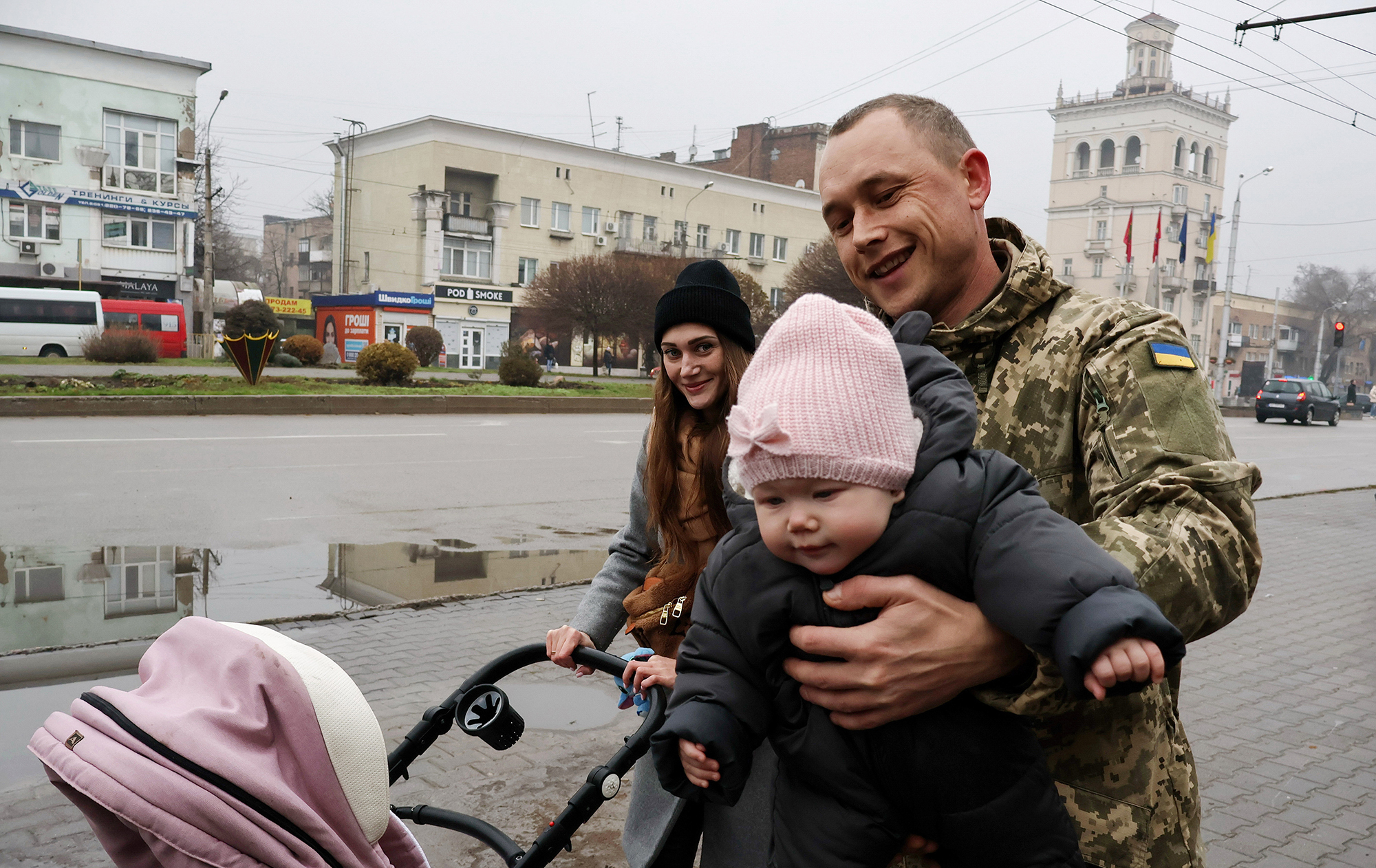
– Should women be mobilized, or will it yield the expected result?
– My personal opinion is that we need not girls, we need highly qualified professionals. If a girl comes to work as an accountant in the Armed Forces – welcome. But if there's an artist who learns to storm positions – she has the right to do so, but the question here is about efficiency. If we go beyond ethics, I'm for effectiveness. I've seen very cool girl-managers, snipers, medics, a self-propelled gun commander – they handled it like a goddess.
But mobilization is coercion. Let's fight sexism, ageism, fat-shaming and create conditions for them to volunteer themselves. I don't see us winning the war by calling up a hundred thousand valkyries and throwing them all into battle. I asked this question to non-military women – they doubt whether they can perform tasks at a decent level.
- As civilians, how should one communicate with military personnel, and what should be understood about the perceptions of those who have been on the front lines? What topics are taboo?
- When it comes to taboos, there's no room for pity. Even if someone is missing limbs, pity doesn't make them stronger. It's not about making fun of them, but portraying them as "poor thing, suffering from the war" is not okay either. Don't ask questions to which you're not prepared to hear the answers: "What was the most terrifying thing in the war," "Tell me what you were afraid of," "How many people did you kill." Avoid asking provocative questions like, "Why did you go to this war, concocted by someone there with Putin", as it undermines the soldier a bit.
You can talk about your feelings: "I'm proud of you," "You're tough because you went, while I'm scared." You can express how pleasant it is for you to communicate. But if someone has a disability – missing a leg – and falls, when you approach them, ask for permission to help them, but don't lift them up. And control your emotions, because staring at someone's missing limb is inappropriate.
If you want to pay for them in the store, do it right: "Hello. I really want to pay for you, may I?" And then you should respect their "yes" or "no." Someone paid for me incognito at a café once, and it was nice. But it's not okay if you show that you're better because you can pay, stronger because you can lift, more experienced because you can tell how the counteroffensive should have been fought. Giving advice, criticizing, raising your voice – that's not good. But if a military person crosses your boundaries, shouts, intrudes, makes some jokes – that's not okay.
A soldier may be scared of sounds, may fall and cover themselves – it's normal, thanks to this reaction they survived in the war. It's important to approach, ask if you can help.
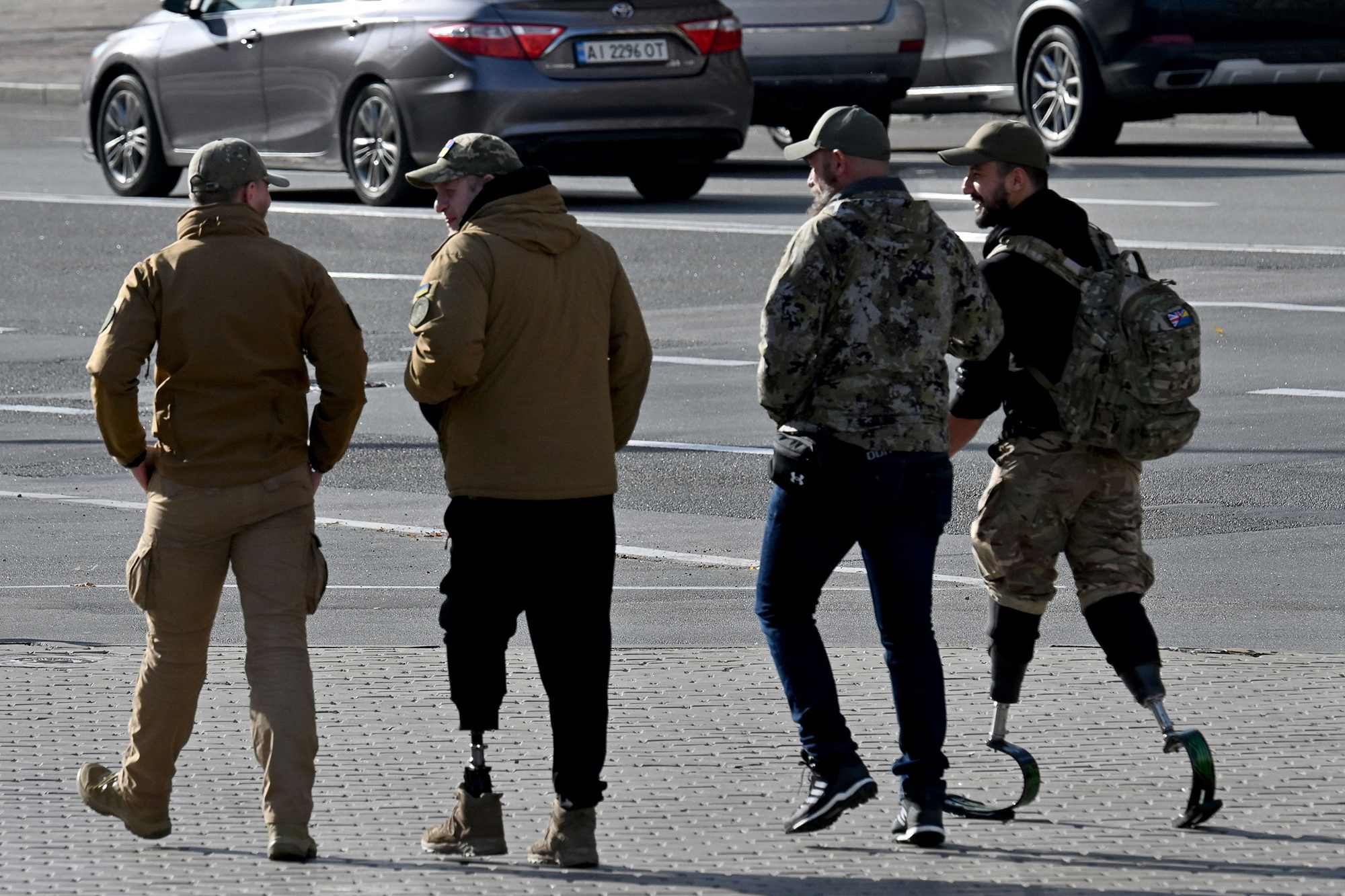
After the war, certain qualities of a person may manifest – both bad and good. Phobias may appear, aggression towards oneself, a tremendous sense of guilt for surviving while comrades did not. "I am not worthy to live" – poisoning oneself with alcohol, having a bad attitude towards oneself and the world, it's suicide for years.
For society's advice: if you respond to conflict with aggression, you don't stop the conflict. This doesn't mean you should tolerate if something happens, but we need to learn to express dissatisfaction non-violently, with respect. You can say: "I'm sorry, you're doing this, and it makes me uncomfortable."
Society is divided between those who left as refugees and those who stay in Ukraine. What are the misunderstandings between them and how to overcome them?
From my experience, those who don't return are the ones who had a very bad time here. I know someone who was a student here. She studied well, didn't drink with everyone, and because of that, she was bullied. She went to another country, studies there, doesn't drink – and everyone says, "You're great," she learned a language from scratch in six months. She says, "I'm afraid to come back." Everyone who had a good time here in some way returns. Do we need to use violence against those who are doing well there to make them come back? No, we need to create conditions here for them to return. But there's a cultural code left there, they miss things there too.
Sometimes men fight, and women become refugees abroad – and meet Francesco there. Most divorces happen this way.
I believe that people who stayed here can create an economic miracle. Will forced return of refugees help win the war – I'm not sure. What use are they, especially the men? In my unit, there are up to ten soldiers who returned from abroad, where they worked as truck drivers, engineers.
I want us to hold auditions for the army. The question is, what are we doing for motivation. Show that this is the best job in the world, that it's beauty, pride of the nation. That if you get wounded, you'll have a good prosthetic hand, if you die – your mother and wife will be provided for, you'll inscribe your name with your crooked handwriting in the history of Ukraine.
- The war continues and the psychological background of it is difficult. What advice can you give on overcoming stress, exhaustion, and feelings of hopelessness due to the war?
- You need to love stress because its purpose is to prepare you for bigger stress. You can't ignore it. So we need to have resources. Even if you're not at war, in a peaceful city, but still living during war, you need to be disciplined. Try to sleep, wake up, eat at the same time, don't use mobile phones an hour before sleep and after. You'll see you have a lot of energy. Dedicate time to yourself – not just to sleep, eat, and shower. Do something for yourself, not for the family – read a book, take a walk.
Because we need to use this energy, this resource for the state. You won't be able to cope, experience stress normally if you don't "recharge" yourself.
When you're stressed, you make emotional decisions. To make rational decisions, you need to think rationally, which you can't do in stress. Stress is normal when you've worried a bit and return to functionality: pay taxes, take care of yourself, communicate with society, work because you're looking for it, and study because you're looking for it. But when you can't do anything, have no strength for anything, work doesn't matter, relationships break down – then it's time to go to a mental health professional, to a therapist.
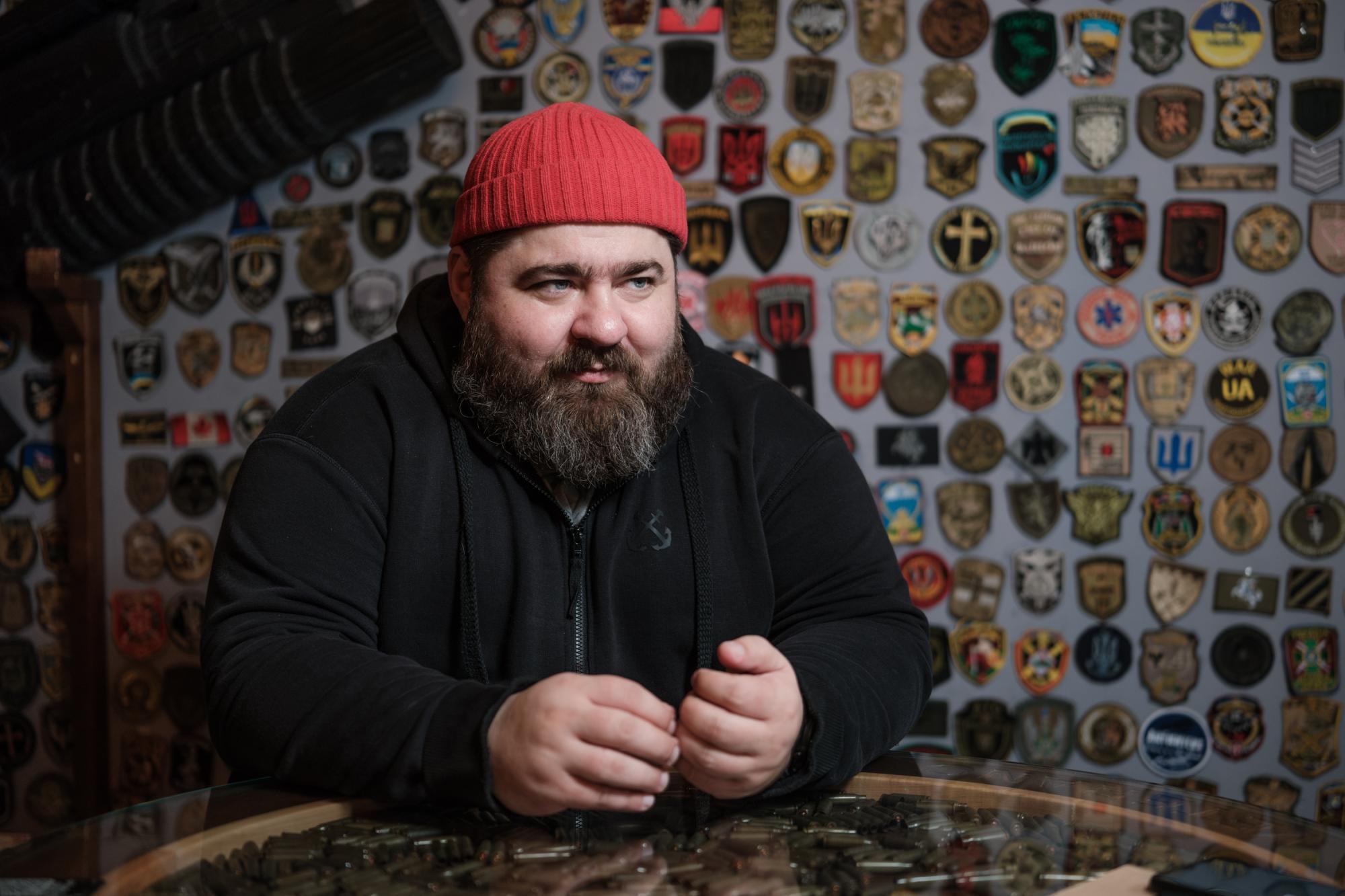
- Can one attend parties, concerts, restaurants during wartime?
- If it's part of your resource, you can do whatever refreshes you. You travel abroad to the seaside, sip on prosecco, and dance all night at the disco because there's no curfew in Italy. You rejuvenate, feel that you've regained a lot of energy – and then you go back to fighting the war, volunteering.
Rest is not a luxury; it's like 'recharging your mobile phone,' everyone has their own 'entry.' 'Not the right time,' 'better to donate the money' – I disagree here. If you rejuvenate, you'll be able to earn much more. Rest is not a gift. It's a duty. It's like breaking a leg and going to work the next day because you have to, although the orthopedist says it should be fixed for two weeks. It's the same here, you need to recuperate.
But there have to be boundaries – dancing in cemeteries or inviting a widow to a disco – that's beyond the limits. Asking a veteran to drink, who went with me – that's beyond the limits. So, one needs to respect the boundaries of others. I would gladly go to Italy, have some alcohol, go to the seaside. And I would return happy.
There's a misconception that I'll do a lot after the war: join a gym, buy a dress. There's no need to wait 'after the war' – you can do it now. War is not the death of society altogether. Soldiers in the trenches don't care if someone denies themselves something or entertains themselves.
Does anyone disapprove or condemn? When a person lacks the strength to change themselves, they project it onto society and try to manipulate it. I ask my guys: what do you think of this? They don't react at all. They came to see me in Kyiv, I took them to beautiful places, they really liked it, but they said they would never go on their own. Because it's not their social circle, although I would go with them to pubs and bars they like to hang out at.
